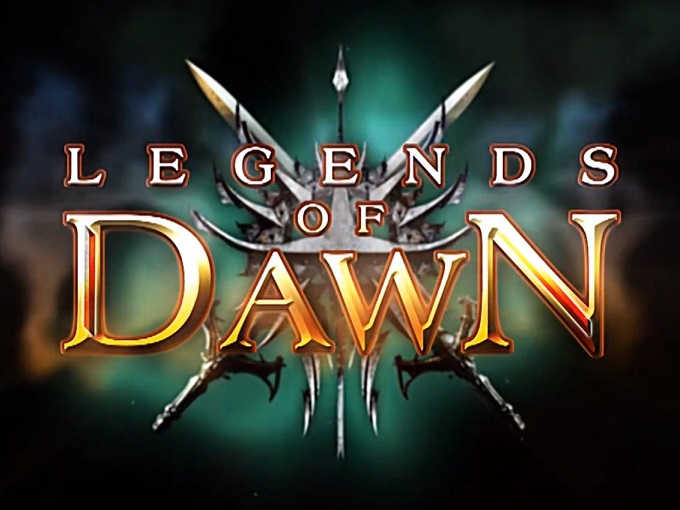By Megan Mellers
[divider]Legends of Dawn walks into a bar.
World of Warcraft and Guild Wars 2 have chased everyone away from the bar stools and are fighting drunkenly. Skyrim and Neverwinter Nights sit in a corner booth, trying to get their online children to behave for five minutes. The Witcher franchise is in the bathroom selling drugs. This open world, sword-and-board, fantasy RPG bar is loud, inbred, and thoroughly saturated.
What will be our newcomer’s fate? Will it get lost in the crowd, booted out the door, or welcomed with open arms?
The prospects aren’t looking good.
Legends of Dawn jumps straight into typical world-saving with a cutscene: some bad beings broke The Dawn and scattered it across a world whose name is too generic to remember (ok, it’s Narr). Now, The Dawn isn’t that good old sun-coming-up-over-the-mountains thing—no, this Dawn is a spiky metal artifact of cosmic importance. Luckily, all 23 pieces of The Dawn remain scattered across the planet for easy collection.
After a lackluster character creation process, which eschews class in favor of versatility later in the game, players find themselves in the sleepy seaside village whose name is too generic to remember (ok, it’s Korden’s Fall) and are informed that they are the offspring of an important father who has disappeared on business. Time to cause some trouble—er, I mean help people and find our destiny.
During their extremely well-funded Kickstarter campaign, Studio Dreamatrix promised gamers an old-fashioned, fun role-playing experience. Key selling points included a lack of handholding and a truly open world with extra freedom in the areas of of movement and character specialization. They also pushed hard for a stretch goal that involved built-in modding tools. In sum total, it sounds like they are hoping to create a classic that is worthy of hundreds of hours of energy and thought.
All their selling points technically exist in-game, except for two: fun and role-playing. The significant problems with their arguably unfinished base product obscure the potential of any “special features.” For example, free roaming doesn’t mean much when the viewing angle prevents you from seeing anything more than a few feet in front of you. It’s like hiking across America staring at your feet.
The quest system, which should form the carefully-crafted bread and butter of this kind of RPG, is more buggy than the spider-infested forests outside Korden’s Fall. One NPC I’d never met thanked me for going to a graveyard I had never visited, and asked me to go back and do him another favor. A drunk gentleman asked me to fetch him beer, then refused to acknowledge that he’d ever met me upon my return.
Moreover, quest-givers usually speak in three or four long paragraphs written in broken, incorrect English (which feels deeply amateurish). Events don’t trigger, or trigger at the wrong time. Challenging players to complete quests without guidance is not an acceptable mechanic if your quest dialogue is largely broken.
The game world, from NPCs to combat, feels as dynamic as if it were cut out of cardboard. The day/night cycle moves through its courses, but no one ever moves and nothing ever changes. I can loot anything in the town down to the dressers in the inn, acquiring any gear I want with no reaction from the townsfolk.
Fundamentally, Legends of Dawn needed to meet and exceed the core mechanics of the myriad of other games it imitates. Instead, it offers a weakly-constructed game that feels disappointingly incomplete. A unique spell-crafting system doesn’t mean much if you can’t stand playing long enough to reach it.
[divider]Game Info
Game : Legends of Dawn
Developer : Dreamatrix
Platforms : Win







